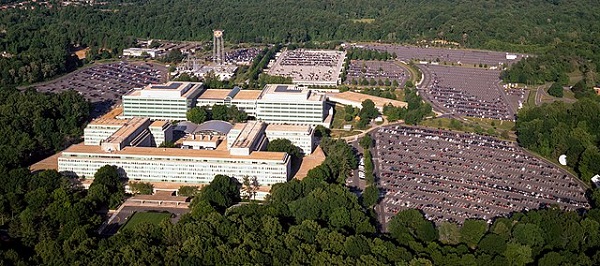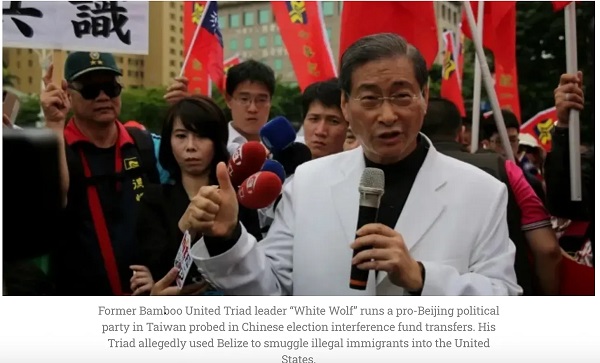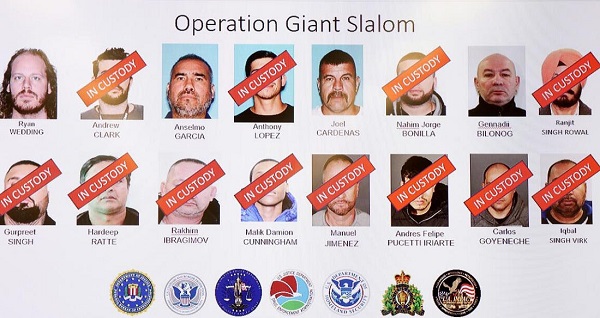espionage
CNN warns angry deep state workers might sell U.S. secrets out of spite

 MxM News
MxM News
Quick Hit:
CNN has raised alarms about potential risks to national security if President Donald Trump moves forward with plans to reduce staffing in intelligence agencies, particularly the CIA. The report suggests that disgruntled employees could be tempted to sell state secrets if they are fired, highlighting the delicate balance between maintaining national security and trimming government bureaucracy.
Key Details:
- CNN’s report warns that mass firings at the CIA could make dismissed employees prime targets for foreign intelligence recruitment.
- The article relies heavily on anonymous sources, raising concerns about credibility and journalistic standards.
- Critics argue that if employees are willing to sell secrets out of resentment, they shouldn’t be trusted with sensitive information in the first place.
Diving Deeper:
CNN’s recent article, “How Trump’s Government-Cutting Moves Risk Exposing the CIA’s Secrets,” suggests that reducing the workforce at the CIA could have severe national security implications. According to the report, current and former intelligence officials are concerned that dismissed employees may become vulnerable to recruitment by foreign adversaries such as China or Russia. The article implies that financially stressed or bitter former employees could sell classified information to the highest bidder, potentially jeopardizing U.S. intelligence operations.
The report, written by Katie Bo Lillis, Phil Mattingly, Natasha Bertrand, and Zachary Cohen, relies heavily on unnamed sources, citing “current and former US officials familiar with internal deliberations.” Critics have pointed out that the extensive use of anonymous sourcing raises questions about the report’s reliability and objectivity. In fact, CNN uses unnamed sources 18 times throughout the article, only once attributing a quote to a named individual, Joseph Gioeli of the Fiscal Service.
This narrative raises an uncomfortable question: If intelligence personnel are indeed likely to betray their country over job loss, why are they entrusted with national secrets in the first place? Beth Brelje, writing for The Federalist, argues that if employees have such weak loyalty, they should be removed from sensitive positions immediately. “Those with too little integrity to exit with grace should not be employed in jobs with access to sensitive information,” Brelje writes, highlighting the paradox in CNN’s portrayal of these individuals as both valuable assets and potential security threats.
Critics also suggest that CNN’s coverage reflects a broader media agenda to undermine Trump’s efforts to reform government agencies. By framing standard budget cuts and workforce reductions as national security risks, the narrative portrays Trump’s cost-cutting measures as reckless rather than fiscally responsible. This perspective aligns with concerns that the media is attempting to protect entrenched bureaucracies that have historically served as sources for politically charged leaks.
The implications of this report are significant. If CNN’s warnings are accurate, then the integrity and loyalty of the nation’s intelligence community must be questioned. On the other hand, if the article is merely speculative propaganda, it raises concerns about the media’s role in shaping public perception with anonymous claims and vague threats. As President Trump continues to implement government reforms, the question remains: Who truly poses the greater risk to national security — the whistleblowers or the bureaucrats they expose?
espionage
Inside Xi’s Fifth Column: How Beijing Uses Gangsters to Wage Political Warfare in Taiwan — and the West

A new Jamestown Foundation report details how China’s Ministry of State Security and allied triads have been used to subvert Taiwan’s democracy as part of Beijing’s united front.
Editor’s Note
The Bureau has previously reported on how Chinese state-linked crime networks have exploited Canada’s real estate market, casinos, and diaspora associations, often under the cover of united front work. One of these groups, the Chinese Freemasons, has been linked to meetings with Canadian politicians, as reported by The Globe and Mail ahead of the 2025 federal election. The Globe noted that the Toronto chapter explicitly advocates for the “peaceful reunification of Taiwan.” The Jamestown Foundation’s new findings on groups active in Taiwan — including the Chinese Freemasons, also known as the Hongmen, the related Bamboo Union triad, and the China Unification Promotion Party (CUPP) — show that Taiwan is the epicenter of a strategy also visible, though less intensively, across democracies including the United States. The parallels — from Vancouver to Sydney to New York to Taipei — should alert governments that the “fifth column” problem is international, and it is growing.
TAIPEI — At a banquet in Shenzhen more than two decades ago, Chang An-lo — the Bamboo Union boss known as “Big Brother Chang” or “White Wolf” — raised a glass to one of the Communist Party’s princelings. His guest, Hu Shiying, was the son of Mao Zedong’s propaganda chief. “Big Brother Chang,” Hu reportedly toasted him, an episode highlighted in a new report from the Jamestown Foundation.
Hu would later be described by Australian journalist John Garnaut as an “old associate of Xi Jinping.” That link — through Hu and other princelings Chang claimed to have met — placed the Bamboo Union leader within the orbit of Party elites. Garnaut also reported that the Ministry of State Security (MSS) had used the Bamboo Union to channel lucrative opportunities to Taiwanese politicians. According to Jamestown researcher Martin Purbrick, a former Royal Hong Kong Police intelligence officer, such episodes show how the CCP has systematically co-opted Taiwanese organized crime as part of its united front strategy.
“The long history of links between the CCP and organized crime groups in Taiwan,” Purbrick writes, “shows that United Front strategy has embedded itself deeply into Taiwan’s political life.”
Chang’s global influence is not a relic of the past. The Bureau reported, drawing on leaked 1990s Canadian immigration records, that intelligence indicated Chang’s triad had effectively “purchased” the state of Belize, on Mexico’s southern border, for use in smuggling illegal immigrants into the United States. But Chang is more relevant than ever as fears of Beijing invading Taiwan grow. In August 2025, seated in his Taipei office before a PRC flag, he appeared on a YouTube program to deny he led any “fifth column.” Instead, he insisted Taiwan must “embrace” Beijing and cast himself as a “bridge for cross-strait peace.”
His denial came just months after Taiwan’s Ministry of Justice accused CUPP of acting as a political front for organized crime and foreign interference. Police suspected more than 130 members of crimes ranging from homicide to drug trafficking. Prosecutors charged CUPP operatives with taking $2.3 million from the CCP to fund propaganda. In January, the Ministry of the Interior moved to dissolve the party outright, submitting the case to Taiwan’s Constitutional Court. By March, a Kaohsiung court sentenced CUPP deputy secretary-general Wen Lung and two retired military officers for recruiting Taiwanese personnel on behalf of the PRC. According to court filings, Wen had been introduced by Chang to the Zhuhai Taiwan Affairs Office, which in turn connected him to a PLA liaison officer.
President Lai Ching-te, in a March national security address, warned that Beijing was attempting to “divide, destroy, and subvert us from within.” Intelligence assessments in Taipei describe the Bamboo Union and CUPP as part of a potential “fifth column,” prepared to foment unrest and manipulate opinion in the event of an invasion.
The historical record shows why Taipei is so concerned. Chang’s name has shadowed some of Taiwan’s darkest chapters. In the 1980s, he was suspected of involvement in the assassination of dissident writer Henry Liu in California. He was later convicted of heroin smuggling in the United States, serving ten years in prison. After returning to Taiwan, he fled again in 1996 when authorities sought his arrest, spending 17 years in Shenzhen. During those years, he cultivated ties with influential Party families. At the Shenzhen banquet, Washington Post journalist John Pomfret wrote, Hu Shiying introduced him as “Big Brother Chang,” signaling acceptance in elite circles. Garnaut, writing over a decade later, noted that Hu was an “old associate of Xi Jinping” and that Chang had moved comfortably among other princelings, including sons of a former CCP general secretary and a top revolutionary general.
These connections translated into political capital. When Chang returned to Taiwan in 2013, he launched the China Unification Promotion Party — a pro-Beijing group openly advocating “one country, two systems.” He declared his mission was to “cultivate red voters.” CUPP cadres and Bamboo Union affiliates became visible in street politics, clashing with independence activists and disrupting rallies. During U.S. Speaker Nancy Pelosi’s 2021 visit, they staged counter-protests echoing Beijing’s line.
The ideological warfare runs even deeper. A Phoenix TV segment from 2011 recalled how a Bamboo Union elder declared in 1981 that he “would rather the CCP rule Taiwan than have Taiwan taken away by Taiwan independents.” Chang himself has echoed this sentiment for decades. In 2005, he launched a Guangzhou-based group called the Defending China Alliance, later rebranded in Taipei as CUPP. His activism has spanned disruptive protests, nationalist rallies, and propaganda campaigns amplified through China-linked media channels.
Purbrick situates these developments within a wider united front playbook. Taiwanese triads and Chinese Freemason associations are courted as grassroots mobilizers, intermediaries, and psychological enforcers. A recent report from the Washington Post has also linked the Chinese Freemasons to the powerful 14K Triad, a global network deeply implicated in Chinese underground banking networks accused of laundering fentanyl proceeds for Mexican cartels through the United States. The triad–Hongmen nexus complements other CCP efforts: online influence campaigns, cultural outreach, and intelligence recruitment inside Taiwan’s military.
The implications extend beyond Taiwan. In Canada, Australia, the United States, Southeast Asia, and beyond, intelligence agencies have documented how PRC-linked triads launder drug profits, fund political donations, and intimidate diaspora critics. These groups benefit from tacit state protection: their criminality overlooked so long as they advance Beijing’s strategic objectives. It is hybrid warfare by stealth — not soldiers storming beaches, but criminal syndicates reshaping politics from within.
For Taiwan, the Bamboo Union and CUPP remain immediate threats. For other democracies, they serve as case studies of how united front tactics adapt across borders. President Lai’s warning that Beijing seeks to “create the illusion that China is governing Taiwan” resonates internationally.
Before leaving journalism to establish an advisory firm, John Garnaut himself became entangled in the political fallout of his reporting. He was sued by a Chinese-Australian real estate developer from Shenzhen, who had funneled large donations to Australian political parties. The developer, later publicly implicated in the case by an Australian lawmaker under parliamentary privilege, successfully sued Garnaut for defamation in 2019. Subsequent disclosures confirmed the tycoon’s implication in an FBI indictment involving United Nations influence schemes and notorious Chinese operative Patrick Ho, later linked to a Chinese oil conglomerate accused of targeting the Biden family in influence operations. Together, these episodes highlight the global reach of united front networks.
Business
A Nation Built on Sand: How Canada Squanders Its Abundance

By Garry Clement
Columnist Garry Clement, former RCMP anti–money laundering expert, argues Canada’s leaders have built prosperity on sand — leaving the nation exposed to collapse unless urgent reforms are made.
Canada is celebrated abroad as a safe, prosperous, and open society. But beneath the surface, a far more precarious reality is taking shape. The pillars of our economy — land, real estate, natural resources, and immigration — have been left vulnerable to foreign manipulation, criminal exploitation, and political negligence. The result is what can only be described as a sandcastle economy — striking at first glance, but fragile. Like the parable of the house built on sand, it is a foundation vulnerable to give way when the storm comes.
Investigative journalist Sam Cooper has long warned that foreign capital and organized crime have deeply infiltrated Canada’s real estate market. On Prince Edward Island, the Bliss and Wisdom Buddhist group quietly acquired swaths of farmland and property, raising questions about how religious fronts with Chinese connections gained such leverage in a province with limited oversight. In Saskatchewan, Chinese investors have been buying up valuable farmland, raising alarms about food sovereignty and the lack of restrictions on foreign ownership of agricultural land. Meanwhile in British Columbia, governments continue to downplay or outright ignore the extent to which transnational money laundering has fueled a housing market now completely detached from local incomes.
All of this has unfolded against a backdrop of minimal transparency, weak beneficial ownership registries, and virtually no effective enforcement. The same blind spots that allowed casinos and luxury real estate in Vancouver to become laundromats for dirty money are now being replicated nationwide.
The most urgent threat tied to these financial blind spots is fentanyl. Canada has become one of the world’s top destinations for proceeds from synthetic drug trafficking — a crisis that has devastated families from coast to coast. Chinese triads, Mexican cartels, and local gangs launder profits through casinos, shell companies, and real estate deals. Yet federal legislation continues to lag behind, leaving law enforcement outgunned. Every toxic opioid death in Canada is not only a health tragedy, but also a reminder of how organized crime is exploiting our lax financial controls. While other countries have implemented tough anti-money laundering regimes, Canada remains dangerously complacent.
That same complacency extends to national security. Canada has repeatedly delayed designating Iran’s Islamic Revolutionary Guard Corps as a terrorist organization, despite overwhelming evidence of its involvement in financing terrorism and conducting influence operations abroad. Our allies — including the United States — have acted. Canada, however, remains an outlier, seemingly unwilling to confront the risk of Iranian proxy activity operating in plain sight within our borders.
Immigration policy reveals similar weaknesses. Foreign students, particularly from India, have become central to the financial survival of colleges and universities. Yet a growing number are not here primarily to study. Instead, education visas have become a backdoor into Canada’s workforce, particularly in industries such as trucking. The tragic Humboldt Broncos bus crash in 2018 exposed gaps in training and licensing in the trucking sector. Since then, reports have continued to surface of foreign students entering the industry without adequate skills — a risk not only to public safety but to the integrity of our immigration system. Ottawa has failed to adequately regulate this pipeline, preferring instead to rely on the tuition dollars and temporary labour it generates.
Editor’s Note: Forthcoming Bureau investigations, citing U.S. government sources, question how widespread fraud and Indian transnational crime capture of Canada’s commercial trucking industry have fueled the flow of fentanyl, cocaine, and methamphetamine — turning the country into a weak link for its international allies.
The threads running through these crises are clear: willful blindness, weak laws, and short-term political expediency. Land and natural resources are being sold without regard for sovereignty. Real estate markets are distorted by laundered money. Organized crime groups funnel fentanyl profits into Canada with ease. The IRGC operates without effective restriction. And the education system is exploited as a labour channel, with little oversight. Canada is, in effect, trading away its long-term security for short-term economic gains.
Politicians, bureaucrats, and regulators too often dismiss warnings as alarmist or xenophobic, when in fact they reflect real risks to the stability of the country. A sandcastle can stand tall on the shore, admired in the moment, but everyone knows what comes next. Unless urgent steps are taken — enforcing transparency in land ownership, restricting foreign control of farmland and resources, tightening anti-money laundering measures, confronting hostile foreign actors, and restoring integrity to the education and immigration systems — collapse is inevitable.
The signs are already here: families priced out of homes, farmers squeezed out of land, fentanyl overdoses climbing, and a public losing faith in the fairness of the system. Canada prides itself on being open and inclusive. But openness without vigilance is vulnerability. Like unwise stewards, our leaders have been gifted with a land of overflowing abundance, and yet they have squandered its potential through short-sighted choices. That failure must be corrected — immediately and wisely — if the nation is to not only thrive, but survive.
The Bureau is a reader-supported publication.
To receive new posts and support my work, consider becoming a free or paid subscriber.
Former senior RCMP officer Garry Clement consults with corporations on anti-money laundering, contributed to the Canadian academic text Dirty Money, and wrote Canada Under Siege, and Undercover, In the Shady World of Organized Crime and the RCMP
-

 Business2 days ago
Business2 days agoCarney Admits Deficit Will Top $61.9 Billion, Unveils New Housing Bureaucracy
-

 Alberta2 days ago
Alberta2 days agoAlberta first to add citizenship to licenses
-

 Alberta2 days ago
Alberta2 days agoBreak the Fences, Keep the Frontier
-

 Business17 hours ago
Business17 hours agoCarney’s ‘major projects’ list no cause for celebration
-

 Business16 hours ago
Business16 hours agoRed tape is killing Canadian housing affordability
-

 Business2 days ago
Business2 days agoCarney’s Ethics Test: Opposition MP’s To Challenge Prime Minister’s Financial Ties to China
-

 Business18 hours ago
Business18 hours agoGlobal elites insisting on digital currency to phase out cash
-

 Business2 days ago
Business2 days agoAttrition doesn’t go far enough, taxpayers need real cuts



